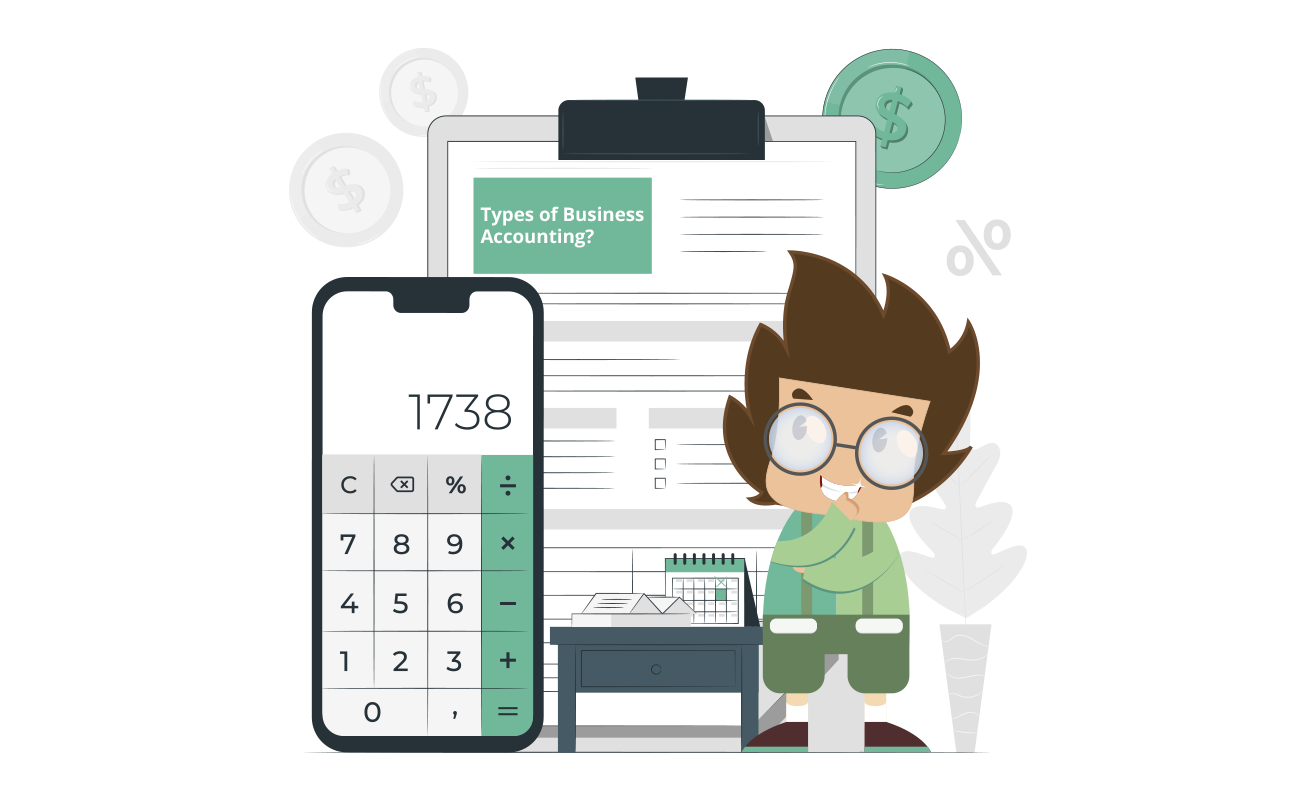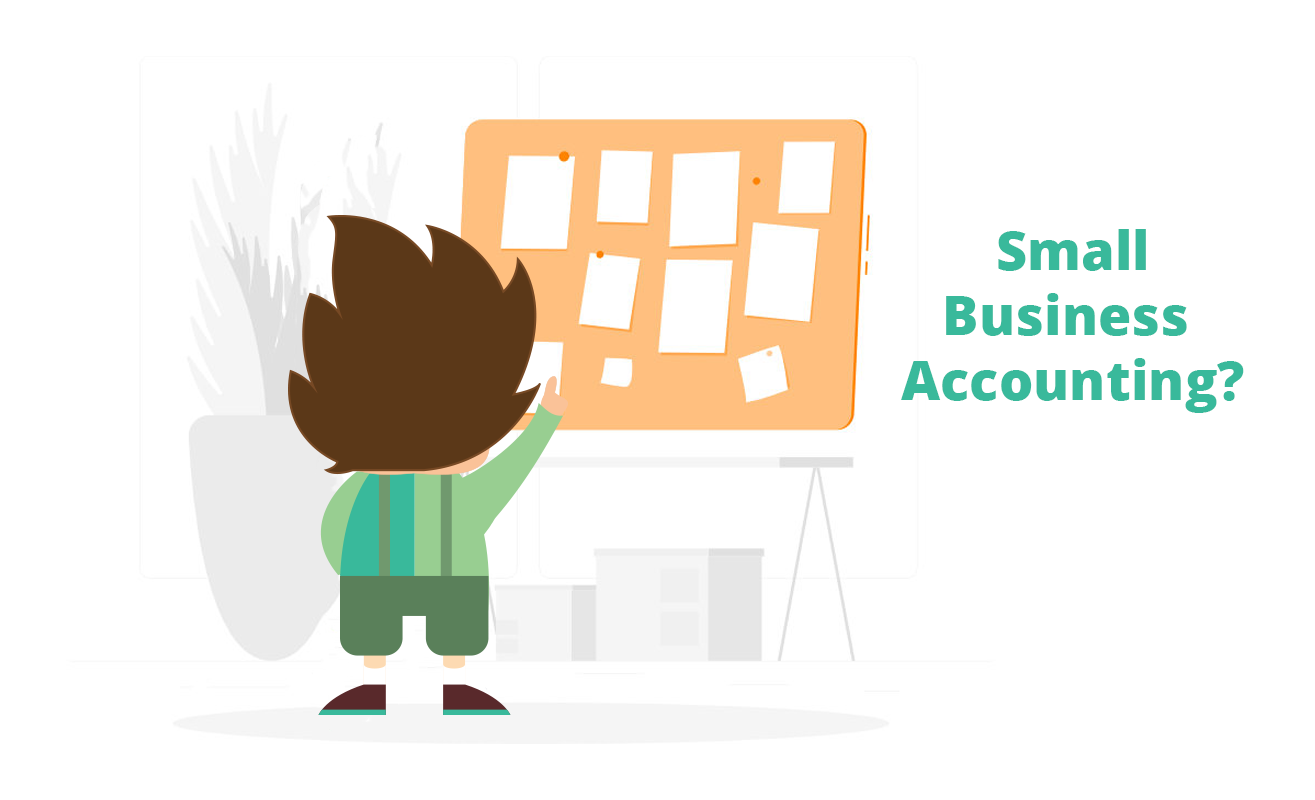Business Accounting Basics and Tips
It doesn’t have to be the scourge of your professional existence to manage corporate money. Furthermore, it doesn’t have to distract you from the personal motives behind why you founded your business in the first place.
The fundamentals of small business accounting, however, may be reduced to just a few best practices and three key documents: your balance sheet, income statement, and cash flow statement. Although it may seem like these need a professional bookkeeper, it is far from the case.
What Is Business Accounting?
The systematic collection, examination, interpretation, and presentation of financial data constitute business accounting. In small businesses, one individual may handle accounting; in large enterprises, various teams may handle accounting.
A firm keeps track of its operations through accounting. Accountants review the financials of the company so the owner can make wiser choices. Reports containing this information are created to illustrate a company’s financial health.
Accounting enables business owners to fulfill their regulatory requirements. Additionally, it aids individuals in making wise financial decisions.
Is Business Accounting Hard?
Although accounting does necessitate a complicated set of talents and abilities as well as good attention to detail, it isn’t that much more challenging than many of the other highly-liked academic disciplines that provide excellent chances for lifelong careers.
What Do Business Accountants Do?
What does accounting mean for you and your company? But how can the aptitude for math and superhuman calculation abilities of an accountant make your life simpler? Here are just a few instances of how an accountant might support the expansion of your company. An accountant can
Advise on business structure
Is the structure of your small business an LLC or a single proprietorship? What makes them different, and what advantages do they each have over the other? An accountant can lead your ship and even take care of the necessary paperwork to get you there.
Help create business processes
To keep the ship going smoothly, all enterprises must adhere to a set of procedures. You cannot be certain that tasks like shipping, receiving, and billing is completed correctly without these processes. You can collaborate with an accountant to ensure that everything is operating as it should.
Issue invoices
Assuming that your firm must generate a profit, you must ensure that you are properly charging and collecting from your clients. So that you can get paid, an accountant can produce and send bills to your clients.
Track invoices
Though you are aware that invoices were delivered, have they been paid? It’s simple to get off track, especially as your company expands and you attract more clients. Your accountant can keep track of who has paid (and who hasn’t), enabling you to determine how much cash you have on hand and whether late reminders are necessary.
Keep a record of sales
You must be aware of what, how much, and how much money you are producing for your business to prosper. An accountant can monitor the sales of your small business and generate frequent reports so you can stay informed about how things stand. You will then be aware of your best-selling items, the products you should phase out, and the quantity of inventory you require for the following month.
Manage and pay invoices from suppliers
You’ll require more supplies to run your firm as it grows. Your accountant will pay your suppliers and maintain records of those payments for taxes so you may determine the true profitability of your company.
Handle payroll
How many hours a month ago did your assistance put in? What did they get paid? An accountant can determine the salaries of your team members, advise you on the amount to deduct each quarter for payroll taxes, and ensure that all the paperwork is completed correctly.
Prepare your tax return
Taxes are difficult to mention without a moan, don’t you think? particularly for a tiny company. But you must file your taxes, and even more crucially, you must file them correctly. You can collaborate with an accountant to prepare your tax return, and they’ll make sure it’s accurate and submitted on time.
Keep you up to date with tax law
Speaking about taxes, isn’t the legislation a bit complex? Everything changed when the 2018 tax reform bill was passed; you’re probably still catching up.
An accountant can assist you with navigating complex tax rules, ensuring that your company complies with current tax regulations, and keeping Uncle Sam off your back. Some accountants are also qualified to represent your company in the event of an IRS audit.
Create timely financial reports
How well-run is your company? How much cash should be on hand at all times? All the reports you require to make wise financial decisions for your company will be produced by an accountant.
What Are the Types of Business Accounting?
Accounting professionals need the help of financial specialists to produce accounting information that is easily comprehended by a general audience, and a finance department cannot function without input from accounting.
Cost Accounting
The accounting and finance industries disagree over whether the cost and managerial accounting are the same things or two distinct concepts. No matter how you feel about it, there is an overlap between these two accounting disciplines.
Cost accounting’s main purpose is to help businesses figure out their production costs by taking into account how much they spend on the materials and labor required to make their products.
Managerial Accounting
This division of an organization’s accounting department is responsible for gathering and putting together financial records for management and other higher-level employees.
The paperwork created by managerial accountants is exclusively used within the company. The financial documents that managers receive from this department assist them in managing costs and making the best possible company decisions.
Finance Accounting
This department of a firm, which is also known as financial accounting, focuses on outside companies that have shown interest in the business. Employees produce a variety of financial statements for investors.
The balance sheet, income statement, and statement of cash flows are among the most typical ones. Investors might use these documents to determine whether they want to proceed with investing by gaining a better understanding of the company’s financial standing.
Business Accounting Basics
To ensure that your business operations run well, you should be aware of a few accounting principles for businesses. Even though you might be an expert in sales or marketing, you should never discount the value of fundamental accounting. Moving your firm ahead may be all but impossible without a clear financial picture.
Important accounting concepts and words are listed below to get you started. View our articles on accounting terminologies and accounting principles for a more thorough understanding.
is money that you owe to creditors and vendors, which are listed as liabilities because you are legally obligated to pay.
· Account Payable
Money that you owe to creditors and vendors is referred to as accounts payable and is recorded as a liability because you are required by law to make the payment.
· Account receivable
Customers’ outstanding debts for any purchases they made of products or services are frequently categorized as creditable assets because they are required by law to make payments.
· Accrual Basis Accounting
Businesses that use the accrual basis of accounting record revenues and expenses at the time of a sale.
· Assets
Assets include everything that your business possesses that is valuable, including cash on hand, receivables, inventory, furniture, machinery, and real estate.
· Balance Sheet
A balance sheet is a financial record that provides a snapshot of the financial situation of your business after a given period. Assets, liabilities, and shareholder equity are all included.
· Cash Basis Accounting
Businesses that use cash basis accounting system record sales as soon as a payment is received.
· Double-Entry bookkeeping
Accounting professionals that use double-entry bookkeeping create two entries for each transaction. The two equivalent sides, one listing the debits and the other the credits, must be equal.
· Liabilities
Anything that is regarded as owing money to a business is called liability, including accounts payable, income taxes, wages, loans, and other amounts owed.
· Profit and Loss Statement
The income statement, commonly known as the profit and loss statement, lists revenues, costs, and net profits for a certain time frame.
How To Do Small Business Accounting?
Whether you own a little mom-and-pop shop or a major multinational, accounting is an integral element of managing a business. You can begin keeping track of your company’s financial data once you have mastered the fundamentals of business accounting.
Small business accounting involves keeping track of all the revenue and costs your organization incurs and using that data to forecast inventory, sales, create invoices, process payroll, and submit tax returns.
Even while accounting may not be your primary source of motivation, it is a necessary component of the job. You must execute accounting responsibilities on a daily, weekly, monthly, quarterly, and annual basis to make sure your company is successful.
A Certified Public Accountant (CPA) is a professional who helps businesses of all sizes create financial records, manage cash flow, file tax filings, and assess their financial health.
Business Accounting Tasks
Your ability to make strategic decisions is aided when your small business accounting is operating efficiently. However, when it comes to small business finance, there are several things to watch out for. That’s why it’s crucial you do some essential tasks regularly.
Daily Accounting Tasks
1- Record And Deposit Payments
Many minor transactions are made by different firms every day, whereas larger payments are made less frequently by other businesses.
Record payments as soon as you can when you receive them, whether they are made in person with cash or via bank transfer, on the back of an invoice, regardless of how your business handles this.
Avoid holding onto cash and checks; instead, deposit them in the bank so that your accounts are in order and you can make investments.
2- Reconcile Payments
Not every payment is accompanied by a detailed explanation. As a result, it’s advisable to regularly, and while the information is still fresh in your mind, reconcile what you’ve documented in your accounts with what has arrived in your bank account.
This makes it much simpler to spot amounts you don’t recognize and determine how they might be related.
This is also a great chance to classify payments, if necessary, such as by tracking them against a certain project.
3- Update Your Financial Data
At least once each day, but sometimes more frequently, the top accounting software solutions update and present your financial data for you.
However, even if you have to manually update your data every day, doing so will help you identify errors or other issues as soon as feasible.
Leaving your income and expense totals unchecked for several weeks could result in some pretty unpleasant shocks.
4- Maintain Your Inventory
Good inventory management is essential to managing your finances, even if it may not appear like an accounting assignment.
You must have the money on hand to place a new order for stock. You can lose several sales if you run out of goods. Another expense you just don’t need is ordering superfluous products since your inventory is outdated.
Once more, using software that integrates accounting and inventory makes this work considerably simpler.
5- Pay Your Invoices
Payment terms of 30 or 60 days are quite common. However, by paying early, you can get a discount or improve your standing with suppliers.
By reviewing your bills daily, you also have plenty of time to find and fix any mistakes before the payment is due or to consult with your coworkers about what has been delivered.
Weekly and Monthly Accounting Tasks
Process Payroll and Employee Timesheets – Even while you probably won’t pay your employees every day, you still need to upload and review this information frequently to make sure payroll functions smoothly.
Bill Your Customers – The number of clients you work with will determine how frequently you invoice them. However, don’t wait too long because forgetting important details will hurt your cash flow.
Chase Unpaid Bills – Speaking about financial flow, one of the main causes of small businesses failing is it. You won’t be able to purchase fresh products or pay other expenses if your customers don’t pay. Every few days, remind them to remember you.
Check Your Financial Situation with An Accountant – Competent accountants perform more than just log payments. They take a broader view, offering you strategic advice and ensuring that you fulfill your tax requirements. Visit them at least once a month so they can monitor your funds carefully.
No matter how regularly you perform necessary accounting duties, using specialized accounting software will greatly simplify the process.
Best Small Business Accounting Software
To eliminate manual data entry and save time, every business owner requires reliable accounting software. You utilize small business accounting software to rapidly and conveniently retrieve financial data. You can use it to monitor your bank balances, comprehend revenue and costs, forecast profitability, foresee tax liabilities, and more.
New G Solution
For all online e-commerce, business-to-business, wholesale, distribution, and small-to-medium businesses, there is a cloud software solution called New G Solution. We think that effective software would reduce human error and assist you to manage your time, company, and vendor-client relationships.
A structured dashboard from New G Solution gives you access to the most crucial data you require to evaluate your company’s expansion and gauge its financial health.
There are different parts on the dashboard. The first shows an explanation diagram along with the total sales, purchases, and earnings from the previous month. The latter provides links to the most popular pages. The final one shows the annual cash flow for all of your payments, the inflow and outflow of cash, and the top-selling items from the previous month.
Advantages:
- Control your inventory and stock levels across platforms and marketplaces.
- Powerful pricing services will provide you control over your B2B business.
- Monitor your items across several locations and storage facilities.
- Maintain a serials log.
- Control your RMA.
QuickBooks Online
All of your expenses, including those for inventory and maintenance, as well as each sale your company makes over time are displayed by QuickBooks. Additionally, it provides inventory automation using perpetual inventory tracking so that every time you make a transaction, your sales and inventory cost are updated. To stay organized and current, you can link QuickBooks with Shopify as well.
Advantages:
- Mobile App
- Cloud-Based Technology
- Mileage Monitoring
- Contractor Management
- Inventory Tracking
- Separating Business and Personal Expenses
Wave
A web-based accounting program designed for small enterprises is called Wave. You can integrate your bank accounts, PayPal accounts, and other data sources with its bank reconciliation tool to view company transactions in real time. Additionally, you can produce reports for accounts payable, balance sheets, sales tax, and accounts receivable.
Advantages:
- Affordable
- Affordable Credit Card Processing Costs
- Scanning Of Receipts and Free Accounting
- No Transactional or Monetary Restrictions
- Any Number of Users Is Possible
- Mobile Application
Xero
A cloud-based accounting program for small and expanding enterprises is called Xero. You can get in touch with a dependable advisor and learn more about your financial situation. It is accessible through any device. Additionally, you can examine cash flows, transactions, and other financial data from anywhere thanks to Xero’s sophisticated accounting tools.
Advantages:
- Management Of Stocks and Inventories
- Reasonable Prices
- Links To Significant Banks
- Easy-To-Read Reports That Can Be Customized
- Database Of Contacts and Segmentation
- Payroll App for Mobile
- Banks Are Compared
A Success Checklist for Business Accounting
You can create financial reports, handle taxes, and take care of other small business accounting responsibilities with the use of accounting software like New G Solution. This kind of software can significantly simplify your life as a business owner. Contact us






Recent Comments